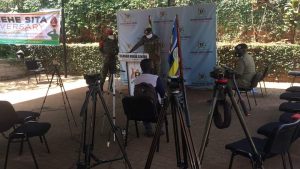
WEST NILE LEADERS EULOGIZE THE FORMER OWC COORDINATOR LATE R...
April 15, 2024
 play_arrow
play_arrow
Radio Pacis Arua 90.9 FM
 play_arrow
play_arrow
Radio Pacis Arua 94.5 FM
 play_arrow
play_arrow
Radio Pacis Gulu 101.4 FM
 play_arrow
play_arrow
Radio Pacis Moyo 104.8 FM
todaySeptember 23, 2022




April 15, 2024
April 15, 2024
April 15, 2024

April 12, 2024

April 12, 2024

April 12, 2024

April 12, 2024

April 11, 2024
Radio Pacis Official Website © 2021 All rights reserved
Developed by CommunicationReligieuse.com